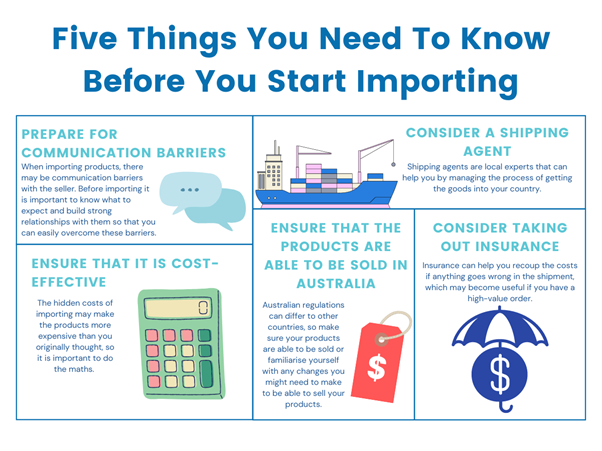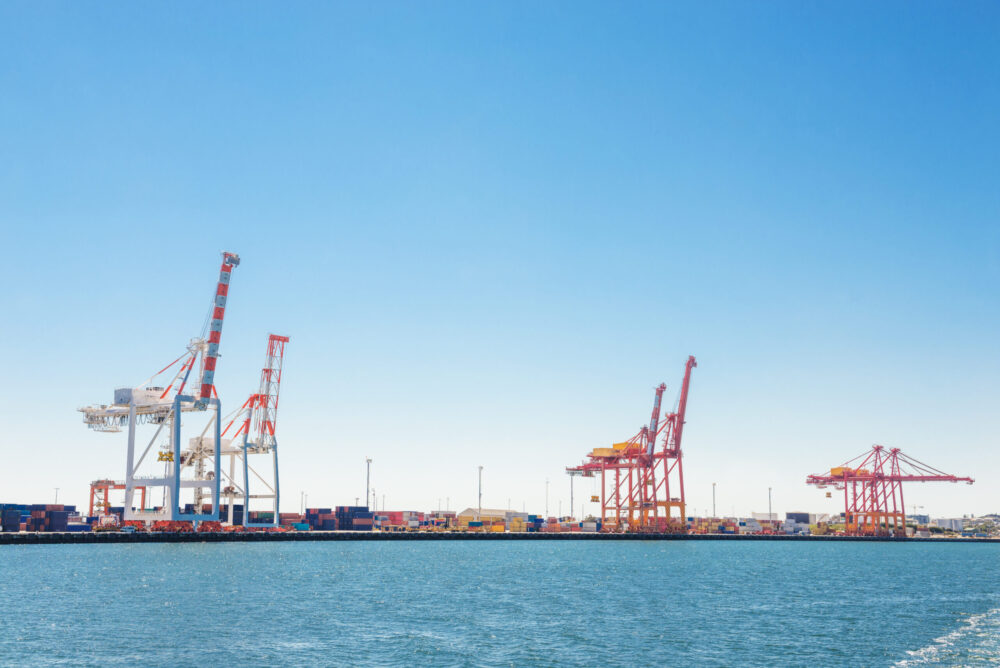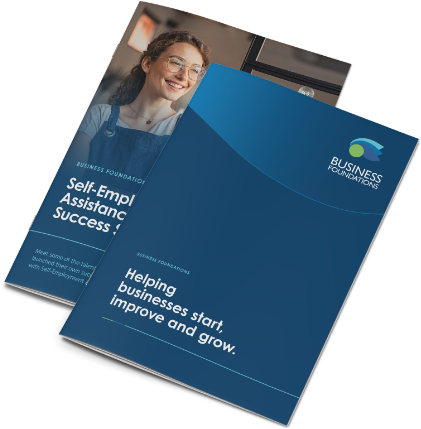Five Things You Need To Know Before You Start Importing
December 16, 2022
Whether you are just starting your business or are looking to expand your product line, you may be considering importing goods to sell in Australia. Whilst importing can allow your customers to purchase exciting new products, there are challenges that you will need to be prepared for as an importer. Business Foundations has created a guide on the things that you need to be aware of before your business starts importing.
1. Prepare For Communication Barriers
When you are importing goods from another country, you may find yourself dealing with sellers with different languages, culture, or time zones to you. It is important to create strong relationships with your exporters so that you can easily overcome any communication barriers. Like with any supplier, it is always beneficial to have a good relationship so that you can better navigate issues such as late payment, delays, or price increases.
2. Consider A Shipping Agent
A shipping agent is designed to simplify the importing and exporting process for their client. They are local experts that can handle the process of shipping your products to you and the customs process. This will take some of the pressure off you as a business owner, and can give you the piece of mind that someone with local knowledge is organising the transportation of your goods out of their country.
3. Ensure That It Is Cost Effective
Importing is not always as cost-effective as it seems, there can be many hidden expenses such as exchange rates, taxes, and the cost of shipping itself. This is especially important to note if you are looking to start importing goods that are similar to your existing products, but at a cheaper price. You need to work out exactly how much it will cost to import your items and compare them to the amount you intend to sell them for. If you can’t import the products and sell them without making a profit or offering them at a reasonable price, you might want to rethink your decision.
4. Ensure That The Products Can Be Sold In Australia
Australia has strict consumer safety regulations and food and drink labelling standards, which may render the products you are importing unable to be sold or stopped at customs. It is important to first check that your product won’t be impacted by any Australian laws, and then pass on any relevant requirements or information to your supplier so that they can help you navigate the situation.
5. Consider Taking Out Insurance
There is nothing worse than having your goods arrive damaged or missing, so consider taking out insurance. If your orders are low value there may be no need to do this, as your products should arrive in good condition almost always. However, with COVID-19 delaying shipments around the world, it is only increasing the amount of time available for a shipment to go wrong. You should be able to ask your shipping agent about the process of having the shipment insured.

Importing products can help your business cut costs and revolutionise your product line. However, it is important to identify the risks alongside the opportunities to ensure that the importing process is done right.
Acknowledgement Of Country
Business Foundations acknowledges the traditional custodians throughout Western Australia and their continuing connection to the land, waters and community. We pay our respects to all members of the Aboriginal communities and their cultures; and to Elders both past and present.
Victoria
The Commons
80 Market Street,
South Melbourne VIC 3205
admin@businessfoundations.com.au
Western Australia
Wesley Central
2 Cantonment Street,
Fremantle WA 6160
admin@businessfoundations.com.au


Get In Touch
Have a question or to find out how we can help you, please get in touch.






